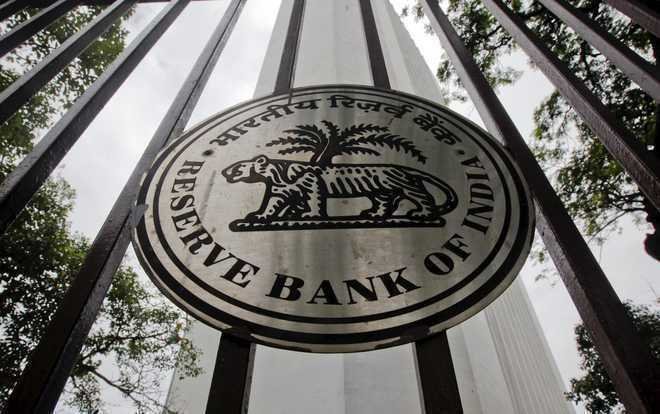Government Approves Digital Communication Framework between Banks and CEIB
In a significant move towards strengthening communication channels between banks and the Central Economic Intelligence Bureau (CEIB), the government has recently approved a digital communication framework. This step aims to enhance information exchange and combat financial fraud effectively. The framework will streamline the process of sharing crucial data related to suspicious transactions, money laundering, and other financial irregularities. This article explores the importance of this news, provides historical context, and presents five key takeaways for students preparing for government exams in various positions.
The approval of the digital communication framework is a vital development considering the increasing complexity and volume of financial transactions in today’s digital era. Traditional communication methods often led to delays and inefficiencies in reporting and investigating financial crimes. With this framework in place, banks and the CEIB will be able to share information seamlessly, allowing for quicker and more effective responses to potential threats.
Financial fraud poses a significant challenge to the economy and national security. By establishing a digital communication framework, the government aims to bolster the fight against such illicit activities. This initiative will enable the timely detection and investigation of suspicious transactions, ensuring that perpetrators can be brought to justice. It will also serve as a deterrent, discouraging individuals from engaging in fraudulent practices.
The digital communication framework will foster better cooperation and collaboration between banks and the CEIB. It will create a streamlined process for reporting and sharing information, eliminating the complexities associated with manual procedures. By promoting information exchange and leveraging technology, this framework will facilitate a more efficient response to financial crimes, ultimately safeguarding the interests of the nation.

Why this News is Important:
The recent approval of the digital communication framework between banks and CEIB is a significant development that holds immense importance. This section will highlight why this news is crucial and explore its implications in different aspects.
By approving the digital communication framework, the government aims to combat financial fraud more efficiently. Traditional communication methods often caused delays and hindered investigations. This framework streamlines the process, ensuring seamless information exchange and quicker responses to potential threats. It empowers banks and the CEIB to proactively address financial irregularities, safeguarding the financial system’s integrity.
Financial fraud not only affects the economy but also poses a threat to national security. Illicit transactions can fund illegal activities, terrorism, and other forms of organized crime. The digital communication framework strengthens the fight against these activities by enhancing cooperation and collaboration. It enables timely detection and investigation of suspicious transactions, enabling authorities to take proactive measures to protect national security interests. The framework’s implementation will create a robust mechanism to counter financial crimes that could have broader implications for the country.
The approval of the digital communication framework addresses the inefficiencies and challenges associated with manual reporting and investigation procedures. By leveraging technology, banks, and the CEIB can streamline these processes, reducing delays and enhancing overall effectiveness. The framework allows for real-time data sharing, facilitating seamless coordination and quicker response times, thereby improving the efficiency of reporting and investigation efforts.
Historical Context:
To fully appreciate the significance of the recent approval of the digital communication framework between banks and the CEIB, it is essential to understand its historical context. This section provides a brief overview of the background related to this news.
Over the years, the financial landscape has witnessed significant changes driven by rapid technological advancements. The rise of digital transactions and online banking has presented both opportunities and challenges. The need for a secure and efficient communication framework between banks and regulatory bodies like the CEIB became increasingly evident to combat financial fraud effectively.
The government has been proactive in addressing the emerging threats in the financial sector. Various measures, including the implementation of robust anti-money laundering (AML) and know-your-customer (KYC) norms, have been taken to strengthen financial security. However, traditional communication methods often proved inadequate in facilitating timely information sharing and collaboration.
Key Takeaways from “Government Approves Digital Communication Framework between Banks and CEIB”
| Takeaway | Key Takeaway |
|---|---|
| 1. | The government has approved a digital communication framework between banks and the Central Economic Intelligence Bureau (CEIB). |
| 2. | The approval of the digital communication framework will enhance the fight against financial fraud by enabling timely detection and investigation of suspicious transactions. |
| 3. | The digital communication framework promotes transparency and accountability in the financial sector by enabling real-time data sharing between banks and the CEIB. |
| 4. | The framework strengthens cooperation and collaboration between banks and the CEIB, fostering better communication channels. |
| 5. | The approval of the digital communication framework will enhance the fight against financial fraud by enabling the timely detection and investigation of suspicious transactions. |
Conclusion
In conclusion, the approval of the digital communication framework between banks and the CEIB is a significant development that aims to strengthen communication channels, combat financial fraud, and promote transparency in the financial sector. This framework will streamline the process of sharing information, enable timely detection of suspicious transactions, and enhance cooperation between banks and the CEIB. Students preparing for government exams should grasp the importance of this development as it reflects the evolving dynamics of the financial sector and its relevance to various positions in the government.
Important FAQs for Students from this News
Q1: What is the Central Economic Intelligence Bureau (CEIB)?
A1: The Central Economic Intelligence Bureau (CEIB) is a specialized agency under the Department of Revenue, Ministry of Finance, Government of India. It acts as the nodal agency for gathering and disseminating intelligence on economic offenses, including financial fraud and money laundering.
Q2: What is the purpose of the digital communication framework between banks and the CEIB?
A2: The purpose of the digital communication framework is to streamline the process of sharing information between banks and the CEIB. It aims to enhance communication channels, facilitate timely detection of suspicious transactions, and strengthen the fight against financial fraud.
Q3: How will the digital communication framework benefit the banking sector?
A3: The digital communication framework will benefit the banking sector by enabling seamless information exchange with the CEIB. It will allow banks to report suspicious transactions and financial irregularities more efficiently, ensuring quicker response times and improved collaboration in combating financial crimes.
Q4: What are the key takeaways for students preparing for government exams from this news?
A4: The key takeaways for students preparing for government exams include understanding the significance of the digital communication framework, its role in combating financial fraud, the importance of transparency and accountability in the financial sector, and the relevance of staying updated with current affairs related to the evolving dynamics of the financial sector.
Q5: How does the approval of the digital communication framework align with global practices?
A5: The approval of the digital communication framework draws inspiration from international best practices. Many countries have already implemented similar frameworks to streamline communication between banks and regulatory bodies. This alignment with global practices ensures that India establishes a robust system that adheres to global standards in combating financial crimes.
Some Important Current Affairs Links














